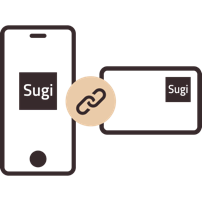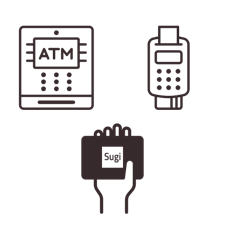How do we bring the benefits of cryptocurrency to everyone?

This is a question that has been on the mind of Alexander Vasylchenko, an early adopter of Bitcoin and former CTO of one of the first secure wallets for bitcoin developed in 2013, the Mycelium Wallet.
The answer, he believes, lies in “blockchain inclusion”:
Alexander said:
- “In the same way inflexible banking processes have placed the underbanked at a significant societal disadvantage, the lack of simple blockchain solutions has so far kept a great majority of people from accessing the benefits of cryptocurrency – just like how the average user had not yet adopted the internet in 1995.”
- “We can’t expect the mass adoption of cryptocurrency without “blockchain inclusion”.
- “Blockchain inclusion is all about improving access to cryptocurrencies by first making payments user-friendly.”
- “This means the industry needs to develop solutions that are so simple that individuals can make cryptocurrency transactions, even without the technical understanding of the mechanics behind it.”
- “In reality, no one really needs to remember their Bitcoin or Ethereum address or know their transaction number, they just want to know who they’re paying their bills to and where they can pay for their groceries.”
- Introducing Sugi Card:
“Sugi Card was built with simplicity in mind. We removed the complexities of using a cold storage wallet by placing the technology behind an easy to use interface. This means users can pay in cryptocurrencies with nothing but a wallet-size card and their mobile phone,” said Vasylchenko.
- Download Sugi Wallet app
- Link your Sugi Card to your phone
- Start purchasing with crypto!



Blockchain Inclusion is the goal
Vasylchenko founded Sofitto, the company behind Sugi Card, to build a more inclusive peer-to-peer payments option out of frustration with the challenges he faced when he was trying to send money abroad to his mother.
On the inspiration behind the breakthrough he said:
“In the past, I’ve tried to explain what Bitcoin, blockchain and wallets are to my mother. But she’s a retiree and understands money in the context of the traditional financial world. Changing that would be too much to ask.”
“So, when I wanted to send some money to her from overseas, I thought a standard wire transfer would be a good option but the process was extremely tedious! After opening an account for foreign currencies, the bank froze the transaction to verify the origin of the incoming funds.”
“What is most bizarre is that I had to declare the EU$3,500 as “humanitarian aid” and was charged an additional EU$20 fee for simply interacting with the banker, an unforeseen ‘communications’ cost. To me, this was a sign of how inefficient and unfair the traditional financial system is for the everyman, especially for those from the developing world.”
“That’s when I realized that while cryptocurrency is a gamechanger, it will only make a meaningful difference when everyone, regardless of their technical know-how or understanding of blockchain, is empowered to use the technology in a secure manner.”




















